I Dig Sports
Would a Super League really be that super? The stats say otherwise

The proposed European Super League may have flamed out within 48 hours of it being announced this week, but for a brief time we were being promised a new league chock full of footballing superpowers: AC Milan, Arsenal, Atletico Madrid, Barcelona, Chelsea, Internazionale, Juventus, Liverpool, Manchester City, Manchester United, Real Madrid and Tottenham Hotspur.
- Marcotti, Ogden: Super League fallout: UEFA, Champions League reform again?
- Olley: Premier League after Super League collapse: Big Six facing legal issues?
- Lowe: How Spain reacted to Barcelona, Real Madrid, Atletico split
Had the whole thing not dissolved quicker than you could say "this idea is a spit in the face of all football lovers," the competition would have pitted a stellar selection of the continent's most venerated and decorated clubs (and Spurs) against each other.
The Super League's organisers were banking on the sheer historical stature of the 12 would-be "founder" clubs from England, Spain and Italy delivering on a regular basis the kind of enthralling heavyweight slugfests usually reserved for the latter stages of the Champions League.
Sounds great, right? Well, as is so often the way, the reality of the situation probably doesn't match up to the big sell.
A look at this season's results between the breakaway clubs from the Premier League, La Liga and Serie A when they play each other at domestic league level shows that, when the big teams clash, the action isn't quite as pulsating as you'd imagine.
The high calibre of names involved would definitely be worthy of the "Super" moniker, but alas the underlying stats don't quite follow through on that promise.
- Marcotti: Why clubs abandoned their Super League plans
- Hamilton: How fan revolt helped cause Super League collapse
Premier League
Meetings between Arsenal, Chelsea, Liverpool, Manchester United, Manchester City and Tottenham Hotspur are usually built up as epic, gladiatorial clashes but the truth of the matter is they can often be tense, cautious affairs which struggle to deliver much in the way of thrills.
For example, there have been 27 league meetings between two "Big Six" sides so far during the 2020-21 season, which combined have mustered a relatively meagre total of 59 goals:
Man United 0-0 Man City
Man City 0-2 Man United
Man United 1-6 Tottenham
Tottenham 1-3 Man United
Man United 0-1 Arsenal
Arsenal 0-0 Man United
Man United 0-0 Chelsea
Chelsea 0-0 Man United
Liverpool 0-0 Man United
Man City 1-1 Liverpool
Liverpool 1-4 Man City
Chelsea 1-3 Man City
Man City 1-0 Arsenal
Arsenal 0-1 Man City
Man City 3-0 Tottenham
Tottenham 2-0 Man City
Liverpool 3-1 Arsenal
Arsenal 0-3 Liverpool
Liverpool 0-1 Chelsea
Chelsea 0-2 Liverpool
Liverpool 2-1 Tottenham
Tottenham 1-3 Liverpool
Arsenal 3-1 Chelsea
Chelsea 0-0 Tottenham
Tottenham 0-1 Chelsea
Arsenal 2-1 Tottenham
Tottenham 2-0 Arsenal
That's an average goals-per-game ratio of 2.18, which is considerably lower than the overall 2020-21 Premier League average which stands at 2.67 (854 goals in 320 games as of the end of matchweek 32).
Of those 27 "Big Six" matches, a total of 6 have finished in goalless draws, which amounts to 22.22% of those matches. This is far higher than the overall league proportion for 0-0 results this campaign, which stands at just 8.75% (28 goalless draws from a total of 320 matches) ahead of this weekend's games.
A further 5 of the 27 all-"Big Six" encounters have produced a single goal, while well over half (16) of those games have been limited to just two goals.
There are still three all-"Big Six" league fixtures to come before the end of the season: Man United vs Liverpool (May 2), Man City vs Chelsea (May 8), and Chelsea vs Arsenal (May 12).
La Liga
Atletico Madrid, Barcelona, Real Madrid were the three Spanish clubs who initially signed up to the Super League concept, which was spearheaded by Real president Florentino Perez. The numbers from domestic league clashes involving any two of those sides are slightly more favourable once compared with their counterparts in England, though they still fail to provide a compelling case for dismantling the current system.
Barcelona 1-3 Real Madrid
Real Madrid 2-1 Barcelona
Real Madrid 2-0 Atletico
Atletico 1-1 Real Madrid
Atletico 1-0 Barcelona
Spain's three biggest clubs have scored 12 goals in 5 meetings this season, an average goals-per-game ratio of 2.4. By way of contrast, the 318 games to take place in La Liga so far this campaign have yielded a total of 794 goals, meaning the league as a whole has produced slightly more bang for the buck with an average rate of 2.49 goals per game.
Only one of the 5 matches between Barca, Real, and Atletico has ended in a draw (last month's Madrid derby ended 1-1), meaning none have finished goalless.
Overall, there have been 26 goalless draws in La Liga so far during the course of the current campaign, which equates to 8.18% of the total number of games.
There is still one fixture left between two of the top trio, with Barca scheduled to face Atletico at the Camp Nou on May 8 in a clash that could yet decide the title.
Serie A
Andrea Agnelli was the other chief architect of the failed Super League coup. His club, Juventus, were one of the three Italian sides to sign up, along with AC Milan and Inter.
Those three have only been involved in four meetings between each other in Serie A so far this season, Those four encounters, which include two Milan derbies, have produced 12 goals at a comparatively high average ratio of 3 goals per game.
Inter 1-2 Milan
Milan 0-3 Inter
Milan 1-3 Juve
Inter 2-0 Juve
However, the overall goals-per-game ratio for Serie A this season is still narrowly higher, with 319 games producing 969 goals -- an average of 3.04 goals per game at the end of matchweek 32.
Juventus still have to play both Inter and Milan next month, meaning the numbers are bound to change.
In general terms, despite its somewhat outdated reputation for cagey football, the Italian top flight has produced considerably fewer goalless draws than the both Premier League and La Liga this season. In fact, only 15 of the 319 games have finished 0-0, 4.7% of Serie A results this season.
So there you have it -- this season has seen the combined domestic league meetings between Super League "founders" return fewer goals than all their respective league averages.
And just to make matters more damning, the Premier League "Big Six" -- who were originally meant to constitute half of the teams in the European Super League -- have resulted in goalless draws at a rate almost three times higher rest of the division.
So for all of the claims of fans wanting to see more matches between the biggest teams, this season's results would suggest that a Super League churning out more of them might not actually be especially "Super" after all.
Super League fallout: There are issues everywhere
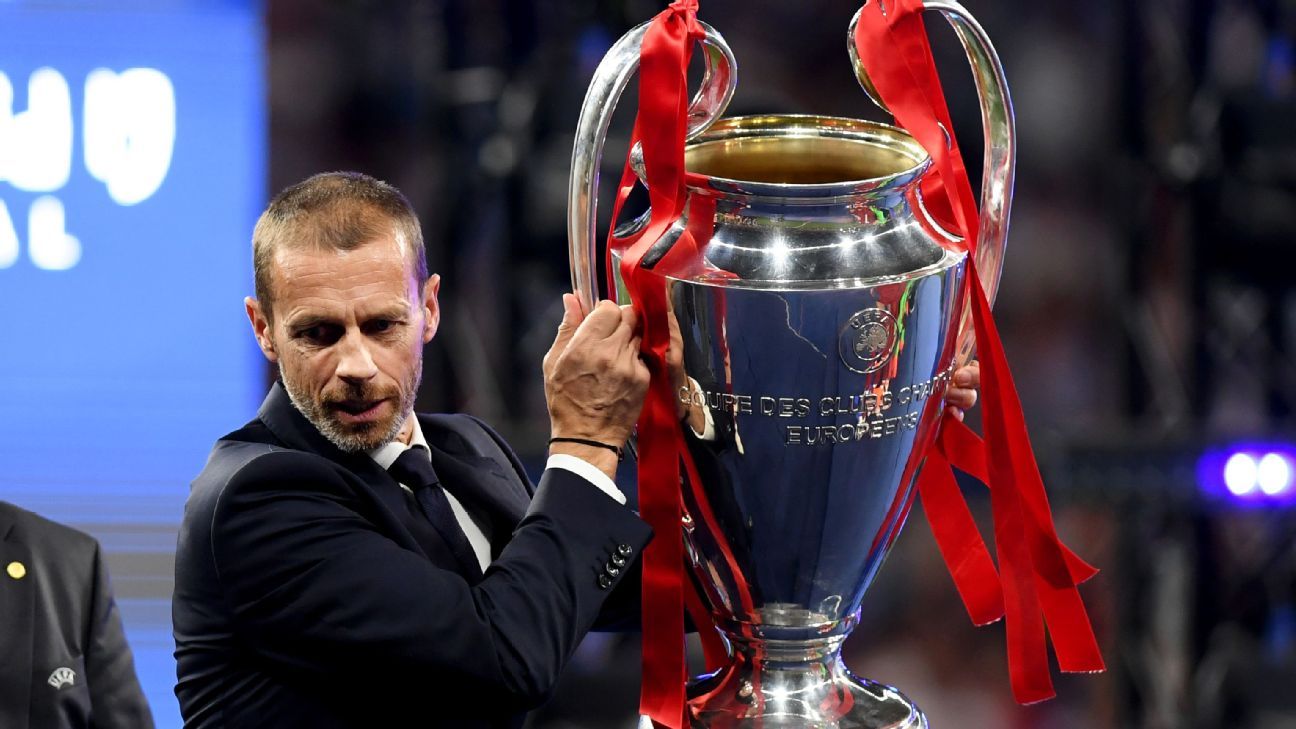
It's been a seismic week for soccer. After the hasty unveiling of the Super League on Sunday -- with 12 top clubs around Europe announcing their intent to form a breakaway competition in which they'd compete, consequence-free, outside the UEFA Champions League -- and its rapid collapse Tuesday as teams pulled out in the face of intense public scrutiny, the attention now turns to talk of punishments, reckonings and high-level discussions about how to plot a meaningful path forward.
- Marcotti: Why clubs pulled out and what's next
- Darke: What now for 'Selfish Six' after Super League climbdown?
- How fan revolt helped bring down the Super League
Though UEFA voted on Champions League reforms, the road map remains unclear and there are lots of issues to unpack. From how UEFA uses its new-found leverage over the "rebel clubs" and how it actually reworks European competition, to England's top clubs attempting to assimilate back into the Premier League's power structure, there are issues everywhere.
Jump to: UEFA, Champions League | England's "big six"
The challenge for UEFA and the Champions League reforms
OK, so now what?
Forty-eight hours after the collapse of the Super League, UEFA find themselves pulled in opposite directions. In Britain, the government is studying the possibility of introducing something akin to Germany's "50+1" model, whereby no single entity can own a majority of the club and a supporters' supervisory board sits at the top. Already, the Champions League reforms passed on Monday -- with their Swiss model and expanded schedule -- are coming under attack, and many inside the game would like to see them rolled back to the current set-up.
On the other hand, the narrative, especially in Spain and Italy, was this: "Well, having places not awarded on merit is wrong, but UEFA need to get back to the negotiating table and listen to the clubs." The simple answer to this is that they've been listening to the clubs -- including the very clubs, especially Juventus, Real Madrid and Manchester United, who tried to set up the Super League -- for six months, which is how we ended up with the expanded Champions League in the first place.
UEFA will need to reconcile those opposing viewpoints and resume the balancing act that his kept this whole thing together. And make no mistake about it: this is a balancing act.
Think of UEFA as a government with elected officials that runs a society (European football competitions). Some in that society have fancy "white-collar" jobs -- bankers, industrialists, tech giants -- and generate lots of money. Others have blue-collar jobs -- taxi drivers, factory workers, etc. -- and generate substantially less, while others still generate nothing, perhaps because they are uneducated or because they have no marketable skills.
UEFA's job is to collect all the money and redistribute it. In doing so, they have to consider whom to give the plum business opportunities to (i.e., on what basis to admit clubs to the Champions League) and, most importantly, how to divide up the pie.
Divide it all equally and -- the thinking goes -- the guys with no marketable skills who produce nothing will be rewarded whereas the talented folks with white-collar jobs will be disincentivized to work hard. And since they are most skilled at what they do, you want to reward them because they, more than anyone, can grow the pie. Equally, if you give too much reward and too much opportunity to the white-collar folks, there will be no social mobility: the blue-collar guys might give up because they've got very little hope or opportunity to rise to the top. Same for the guys at the bottom who aspire to a blue-collar life.
That tension has been at the heart of UEFA vs. club power relations since the Champions League was created nearly 30 years ago, and it still is today. Over the years, that balance has shifted further and further away from an equal split and increasingly towards the big clubs from the big nations, both in terms of Champions League places (opportunities) and the way revenue is divided (reward).
Right now, in the wake of the failed Super League, UEFA hold all the cards. The rebel clubs -- or rather, the people at the very top of those clubs -- return to the fold shamed and humiliated. Popular sentiment is against them, but the challenges that took them to this point remain. You can call it greed or an unwillingness to face the realities of past overspending, but the fact is many are hurting: because they have bigger grounds and bigger sponsorship deals, they bore the brunt of the $6.5 billion to $8.5 billion they say the European game as a whole will lose between last season and this season.
Simply giving them more money is not just unpopular, it's also foolish, unless it's accompanied by serious spending restrictions.
Katie Nolan: American owners learn they can't play 'U.S. game' abroad
Katie Nolan provides her key takeaways surrounding the European Super League on Highly Questionable.
For all the negativity generated by Financial Fair Play -- and it does have its flaws -- we did go from aggregate losses of $1.8 billion before its introduction to two consecutive seasons of profit in just seven years, pre-pandemic. It will be tweaked and reintroduced.
In order for it to work, two things have to happen. First, it can't be so rigid so as to discourage investment, particularly when there is a change of ownership. Some clubs, like AC Milan, changed owners twice in three years, leaving the current owners in a deep hole not of their making that has stunted their growth. Second, where there are breaches, punishment has to be clear, firm and fully transparent. That obviously didn't happen in the past and indeed, the fact that Manchester City could receive maximum punishment and then have the ban overturned a few months later by the Court of Arbitration for Sport did little to restore trust.
That word -- trust -- is paramount. One of the reasons U.S. sports leagues are profitable is that the owners neither attack each other in public, nor encourage others to do so. Where there is confrontation, it happens behind closed doors and gets resolved, usually quietly. When "Spygate" happened, you didn't hear the Dallas Cowboys' owner argue that the New England Patriots ought to be thrown out of the league. That was left to the commentariat.
Those owners understand they're not just "stakeholders" -- they're business partners. And they trust each other (OK, maybe it's "trust, but verify," but still). That's what the clubs need to rebuild with UEFA, with each other and with the fans. -- Gab Marcotti
The situation with English clubs
After the Super League unraveled every bit as quickly as it was proposed at the start of the week, the English teams -- Arsenal, Chelsea, Liverpool, Manchester City, Manchester United and Tottenham -- are now tasked with repairing the bonds broken by their attempted split. They face challenges of reconciliation on several levels, too.
How clubs rebuild trust with fans: This week has seen unprecedented displays of contrition from the owners of the "Big Six." Liverpool principal owner John W. Henry apologised to the club's fans in a video message, while Joel Glazer made his first direct communication with Manchester United fans since buying the club in 2005 to "apologise unreservedly for the unrest caused" and admitting "we got it wrong."
Marcotti slams Super League club owners for 'hiding'
Gab Marcotti doesn't mince his words for the lack of ownership from those involved in the European Super League.
Those mea culpas, and others by owners of fellow rebel clubs, have done little to assuage anger among supporters, however. United fans broke into the club's Carrington training ground on Thursday with protest banners, while Liverpool fans' group Spion Kop 1906 wrote a letter to club owners demanding "change, not patronising apologies" and calling for a meeting to discuss representation on the board.
- Darke: What now for "Selfish Six" in Premier League?
- Ogden: Fans forgotten in Super League effort
- Olley: On scene as Chelsea fans reacted to Super League collapse
The Football Supporters' Association are backing a fan-led review of football governance, announced by the UK government in the wake of the ESL collapse, which will investigate potential changes to ownership models and strengthening of tests to assess the suitability of prospective new owners. But while regarded by many as an ideal outcome, fan ownership of clubs is unlikely due to the value of the Big Six. A 50% stake in United, based on their current share valuation, would cost £1.5 billion, a level of funding that would be virtually impossible for fans' groups to secure and manage.
Open dialogue, concessions on ticket prices and kick-off times would all help mend broken bridges, but fan discontent remains high and protests are being organised for games involving this Big Six this weekend. United and Liverpool supporters are also planning a joint protest ahead of their Old Trafford clash on May 2.
Fixing broken relationships with clubs, leagues: One source at an "Other 14" club has told ESPN that the events of the past week have given the smaller teams a chance to clip the wings of the six teams that tried breaking away and ensure a more equitable share of power within the Premier League. But another source at a Big Six team says that the smaller clubs have been a constant handbrake on reform and exploring new revenue streams due to self-interest and fear of investing in projects in which they will see no benefit.
"We wanted £1m from each club to fund research into tapping into the market in India," a Big Six source said. "But we couldn't get it off the ground because the other 14 know that three of them will be relegated, so they wouldn't finance something that may end up giving them nothing in return. That's what we're up against."
Will Manchester United ever succeed with the Glazers in charge?
Mark Ogden reacts to Ed Woodward's resignation at Man United and examines the future of the club as long as the Glazer family remains in charge.
Such seemingly petty squabbles are a regular occurrence within the Premier League, and it is why the broken relationships may never be repaired -- the reality is that they were never healthy even before the ESL plans came to light.
Talk of punishment and sanctions for the Big Six is likely to prove to be nothing more than bluster due to the reality that those clubs drive the commercial revenue from which all 20 benefit. Hitting them hard would only store up resentment, with one Big Six source telling ESPN that smaller clubs would quickly find themselves having to pay much bigger fees to sign players from those six teams if any sanctions were imposed to damage their earning potential. In turn, the smaller teams know that they have little real power to rein their bigger rivals in.
In short, don't expect any real rapprochement. It has always been the Big Six vs. the Other 14, and nothing has changed.
The way forward for the Big Six and the rest: One Big Six source told ESPN that one of the biggest frustrations of the ESL plan was the failure to deliver the message that all clubs would earn more from the proposed new competition. "Our PR was a disaster from the start," the source said. "Under the Super League plan, the consolidation payment to Premier League clubs would be €160m a year -- more than ten times what they get from the Champions League -- but we were never in a position to get that across. It was all about how we would leave the rest behind, but this was about safeguarding the whole game for years to come."
There is also a view from within the Big Six that many angry voices from the other clubs are largely being aired to suit their audience, when in reality, there is a shared determination to increase revenue in the years ahead. The challenge now is for the 20 teams, in their two clear factions, to work together in an uneasy truce, with neither side trusting each other.
Ultimately, it will come down to the Big Six dragging the 14 along financially. If the top teams are able to boost income that benefits all of the clubs, resistance from the others is likely to subside. Both sides know that they need each other, but it always been an unhappy marriage. Right now, though, they can't live without each other, so they will have to continue as they always have -- by putting up with the friction and tension for the greater good. -- Mark Ogden

Phoenix Hillcrest Prep senior forward Michael Foster told The Undefeated on Instagram Live on Friday that he will be joining the G League Ignite next season.
Foster is currently the seventh-ranked high school player in the 2021 ESPN 100. The 6-foot-8, 215-pounder chose joining the G League Ignite over his final two college choices in Florida State and Georgia or going to play professionally overseas.
The G League Ignite took part in their inaugural season during the 2021 G League Bubble with top prospects who turned down playing in college for negotiated six-figure salaries. Foster averaged 32.2 points, 18.4 rebounds and 4.1 assists for Hillcrest Prep as a senior during the 2020-21 season. With the Milwaukee native leading the way, Hillcrest earned a 37-1 record.
Foster was listed as the 32nd-best prospect for the 2022 NBA draft by ESPN.com's Jonathan Givony in a mock draft released Monday. Foster is expected to receive a salary from the Ignite in the $300,000 range, a source told The Undefeated.
"I couldn't be more excited to welcome Mike to Ignite," G League president Shareef Abdur-Rahim said in a statement. "He is not only a talented basketball player with a really bright future as a professional, but he's a great young man with a strong work ethic."
The Ignite's roster last season included heralded Class of 2020 prep stars Jalen Green, Jonathan Kuminga, Daishen Nix and Isaiah Todd. Green and Kuminga are currently projected as potential Top 5 selections in the 2021 NBA Draft after playing for the Ignite.
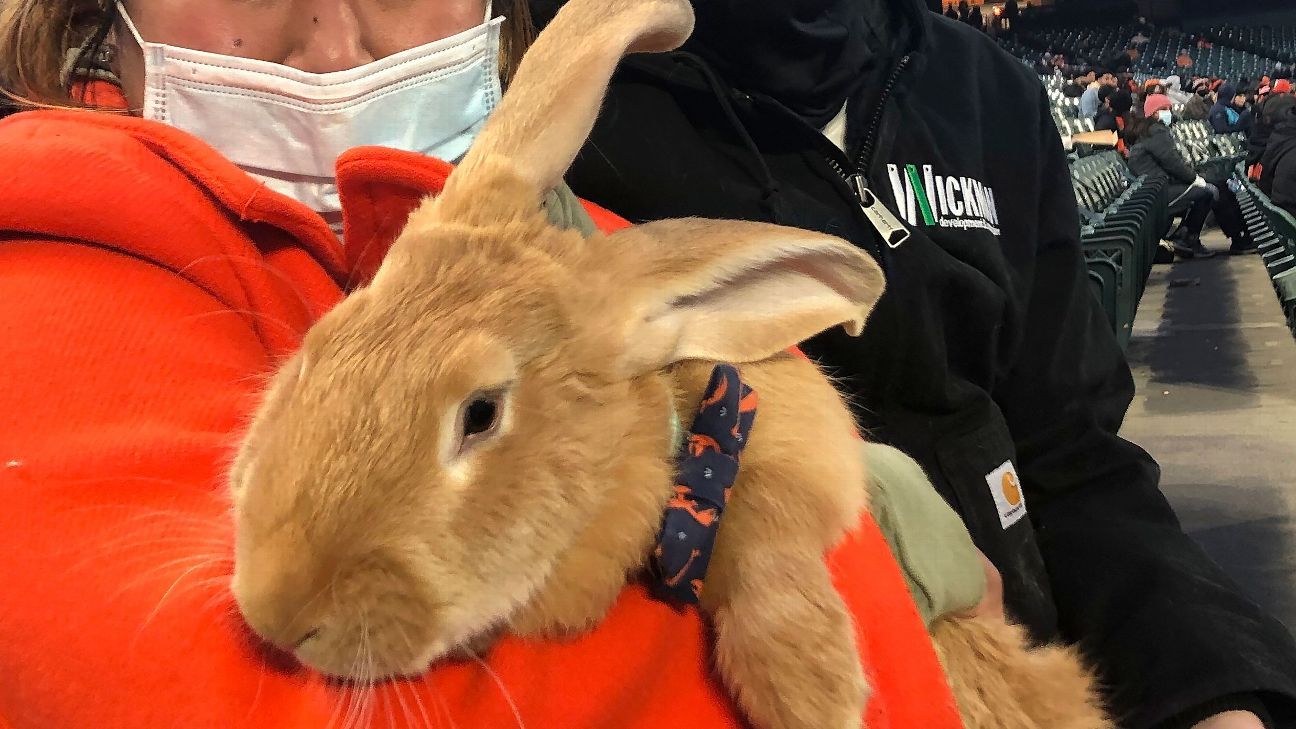
SAN FRANCISCO -- A handsome, golden-colored therapy bunny named Alex came to the ballpark and stole the hearts of San Francisco Giants fans Thursday night, attending the series opener against Miami with owners Kei Kato and Josh Row.
Sporting a dark bow tie with orange crabs to represent the Giants' colors, 4 1/2-month-old Alex earned some major screen time in the early innings -- because it's just not every day you see a rabbit at a baseball game.
The bunny in the stands is believed to be a first in the 22-year history of Oracle Park, according to Giants spokeswoman Staci Slaughter.
"Never. Crazy. ... If we win tonight, she has to come back tomorrow," Slaughter said via text message, noting Alex became an instant Twitter sensation. The Giants did win, 3-0.
Daniel Kurish of the Marlins' media relations staff wasted no time getting in on the bunny fun: In the seventh inning, he was off to deliver Miami gear to the good-sized mammal.
"Tonight's attendance, 4,580, not including the rabbit," official scorer David Feldman announced in the seventh.
Giants CEO Larry Baer was thrilled to host Alex and his owners.
"Love this Therapy Bunny," Baer said. "We could all use a therapy bunny right about now!"
Alex has been an important, beloved companion for the 32-year-old Kato, who lost her brewery restaurant called "K-OZ" during the pandemic and now runs a small café in the U.S. Immigration office. The bunny helps her deal with the anxiety and stress of no longer having her main source of income and fulfillment.
"I lost it all because of COVID, so I've been really stressed a lot," Kato said. "We support local. I was a local. He's well trained, too."
Alex has hopped along with the Golden State Warriors' dance team at its practice outside nearby Chase Center in San Francisco's Mission Bay district. Kato and her fiancee, Row, plan to bring him to see Stephen Curry and the Warriors soon enough. Fans return for the Warriors' home game Friday night against the Nuggets.
"The bunny is welcome! If he's fast, we'll put him in the game to run the fast break!!" Warriors spokesman Raymond Ridder said.
The bunny has attended a NASCAR event and is even an ambassador for Lions Clubs International. Alex helped hand out 400 Easter eggs to children, brings smiles and loves to play, even giving kisses on command. He entertains the masses at farmers markets, has been tubing at Lake Tahoe and has even gone kayaking.
"We actually bring him everywhere," Kato said. "He brings joy to everybody. He brings joy to us."

The San Francisco Giants and the Los Angeles Dodgers are taking an important next step with regards to allowing fans into their ballparks, removing social distancing protocols within specific sections that will be populated by people who are fully vaccinated.
The Giants began designating select seating groups when their second homestand began on Thursday, and the Dodgers will experiment with the idea for Saturday's game against the San Diego Padres. The Padres became the first California team to implement a similar concept during their prior homestand, when they opened certain sections at 67% capacity for fans who were either fully vaccinated -- two weeks removed from their final vaccine dose -- or received a negative COVID-19 test within a 72-hour period.
The Padres accepted either of the two for fans 13 and older. The Dodgers and Giants, who will be closer to full capacity within those designated sections, require full vaccination for fans 16 and older and a negative COVID-19 test for those between the ages of 2 and 15.
California's latest seven-day coronavirus case rate, of 40.3 per 100,000 people, is the lowest in the continental United States and significantly lower than the nationwide rate of 135.3. The latest announcement by Major League Baseball and the MLB Players' Association stated that there were eight new positive tests among the 12,458 conducted over the last week, a positivity rate of 0.06%. Among the 123,770 tests conducted this season, 39 -- consisting of 23 players and 16 staff members -- have come back positive.
The Dodgers, major league leaders in attendance every year from 2013 to 2019, will open up two sections in their Loge level that will not require social distancing and will accommodate roughly 500 fans on Saturday. The team considers this a trial run. It will open a gate in right field specifically for those fans and, like the Giants and Padres, will still require masks in those sections.
The Giants are one of three teams -- along with the New York Yankees and the New York Mets -- who require a negative COVID-19 test to enter their ballpark. For their second homestand of the 2021 season, they identified an additional 1,000 seats spread throughout the ballpark that can seat people close together so long as those over the age of 15 show proof of full vaccination.
The additional seats make up a handful of different seating groups throughout Oracle Park. For May, the team hopes to reconfigure its seat manifest to open entire sections for fully vaccinated fans and ultimately increase their overall capacity to 50%, a Giants spokesperson said.
The five California counties that house major league teams are currently operating within the state's Orange tier, which typically allows for 33% capacity.
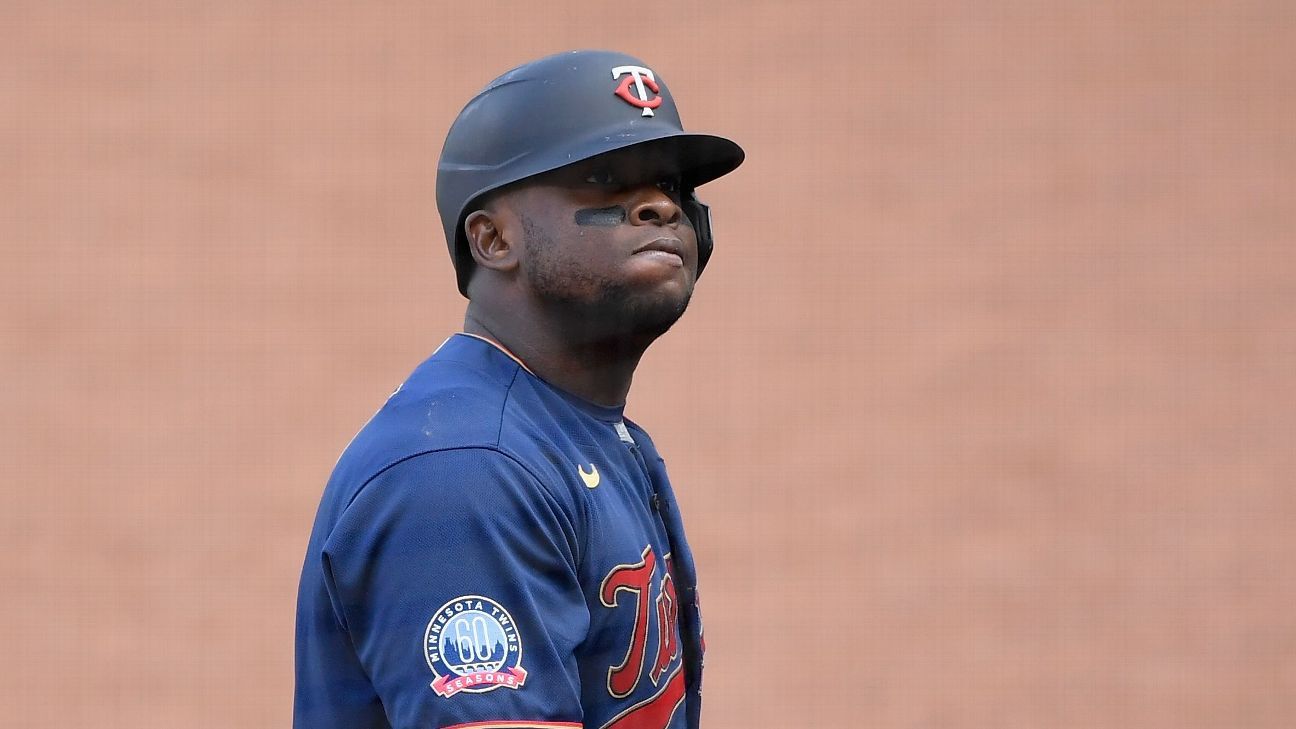
MINNEAPOLIS -- The sputtering Minnesota Twins shelved another regular on Friday, placing first baseman Miguel Sanó on the 10-day injured list with a strained right hamstring.
Sanó is batting .111 with two home runs and 20 strikeouts in 45 at-bats. Shortstop Andrelton Simmons, right fielder Max Kepler and left fielder Kyle Garlick are three of the five players currently on Minnesota's COVID-19 injured list.
Infielder Travis Blankenhorn and catcher Tomás Telis were also returned to the team's alternate training site. Outfielders Alex Kirilloff and Tzu-Wei Lin and infielder Nick Gordon were promoted to fill the open roster spots.
Kirilloff, one of baseball's top prospects who made his debut in the playoffs last year, can also play first base. Gordon, another one of the club's past first-round draft picks, has yet to appear in the major leagues. Lin signed with the organization before this season. He has played in 101 career games, all with Boston. He'll be the first Taiwan-born player in Twins history.
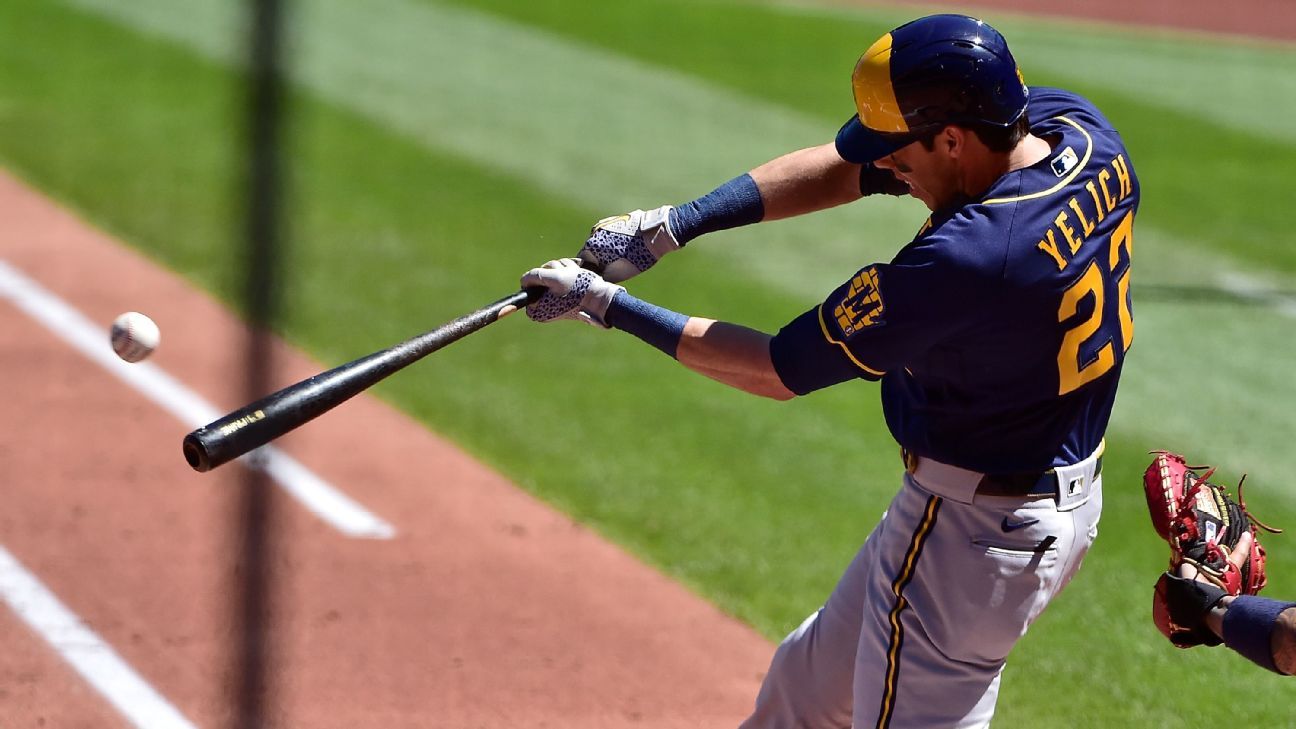
CHICAGO -- Milwaukee Brewers star Christian Yelich won't be activated from the injured list on Saturday, the first day he's eligible to come off, according to manager Craig Counsell.
"He won't hit on the field," Counsell said Friday morning. "He'll hit in the cage."
Yelich hasn't appeared in a game since April 11 against the St. Louis Cardinals. He left that game with a sore lower back and eventually was placed on the injured list. The Brewers have gone 6-3 in his absence and are atop the NL Central.
Yelich was 10-for-30 (.333) this season before the injury. Counsell indicated Yelich would be on the field working out before Friday's game against the Cubs but didn't elaborate how close he is to returning to game action.
"He won't be active [on Saturday]," Counsell said.

Athletes will find tackling two events more straightforward with a spectator-friendly schedule that attempts to tick many boxes
Doubling up at the World Championships will be easier next year after the organisers in Oregon released their competition timetable for the 2022 event at Hayward Field.
The 100m and 200m, 200m and 400m, 800m and 1500m, 1500m and 5000m, 5000m and 10,000m will all now be possible without athletes having to contest more than one discipline on any given day. Other possible doubles include long jump and triple jump, plus the 20km and 35km race walks – although the race walks fraternity is unhappy the 50km distance has gone.
The 10-day schedule from July 15-24 finishes four days before the Commonwealth Games in Birmingham begin, whereas the European Championships in Munich start on August 15.
Medals will be decided in all evening sessions and some morning sessions too. Hammer throwers and 10,000m runners, for example, will have to start their warm-up early in the day for their finals.
The first day also ends with a 4x400m mixed relay final but there are heats on the same day a few hours earlier.
Another break with tradition will see 1500m finals during the first half of the championships. The blue riband 100m finals, however, are still on the first weekend.
There are no morning sessions from July 19-22, while July 18 looks like a big day for British interest with the climax of the heptathlon, Laura Muir potentially in the women’s 1500m and Dina Asher-Smith opening her 200m campaign. For Katarina Johnson-Thompson, a heptathlon and high jump or long jump double is also possible.
The final individual event of the entire championships will be the decathlon 1500m, which organisers say is in tribute to Oregon’s home-grown Olympic and world decathlon champion Ashton Eaton.
For the first time, the championships will end with the women’s 4x400m, honouring a pledge to greater gender equality that World Athletics made on International Women’s Day last month.
“The design of our world championships timetable is both an art and a science, with a lot of moving parts to fit together,’’ World Athletics president Sebastian Coe said.
“We’ve strived to create every opportunity for our athletes to shine, in the stadium, on the road and on screens around the world, and we’re looking forward to watching them do that in Oregon, as our flagship event is held in the United States for the first time.
“You won’t want to miss it,” added Coe, who frequently tackled the 800m and 1500m double during his competitive days.
To view the timetable, CLICK HERE
Julien Wanders ‘confident’ of 5km PB at ASICS Be (at) Your Personal Best event
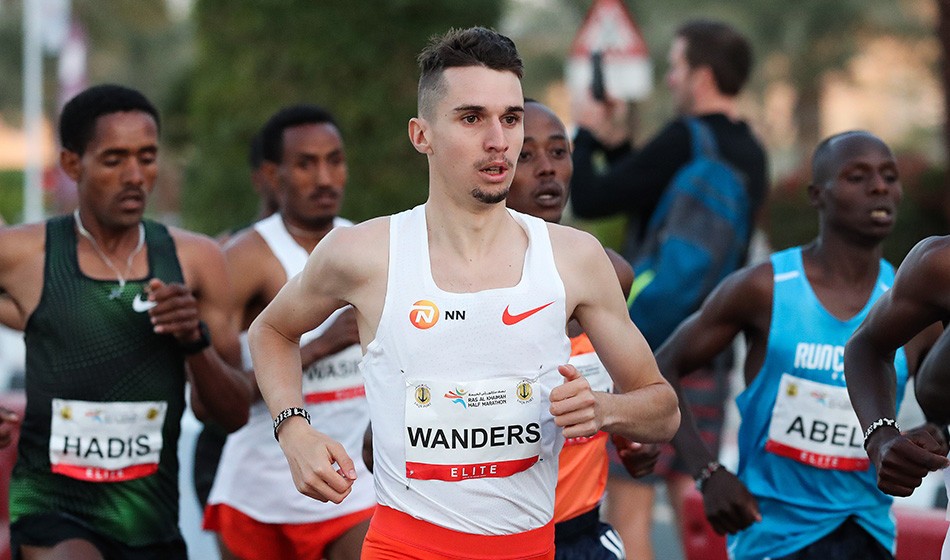
Swiss distance runner looking to beat his 5km PB of 13:29 at upcoming ASICS event in Angers, France
Julien Wanders is ‘confident’ he can achieve a PB in the 5km on Saturday (April 24) as he dwells on doubling up at 10,000m and the 5000m in the upcoming Tokyo Olympics.
He is running alongside 33 other athletes at the ASICS Be (at) Your Personal Best event, including Great Britain’s Charlotte Arter, with each athlete either aiming for a PB in either the 5km or 10km.
“At the Olympics for sure I’ll run the 10km and maybe the 5km,” he says. “First of all, I don’t have the standard. But then if I step into an event, I want to be competitive. With 13:30 I need to lower my PB but I can be competitive in the 10km.”
The 5000m Olympic qualifying time is 13:13.50. The European 10km and half-marathon record-holder will aim to go out at 13:20 pace and beat his PB that he set it Monaco in 2019.
“It’s pretty similar to the course in Monaco because it’s basically 2.5km and then around the bend and then another 2.5km. I think it’s a bit more flat then Monaco. The good thing here as well is that we don’t feel the wind so much so I really believe it’s a fast track. So I’m confident.”
Wanders goes into the event off the back of a recent lung infection although his team say he has taken medical treatment, had a few days off and is now fighting fit.
He’ll run in the new ASICS Metaspeed Sky shoes, after being with Nike, and is eager to see how he performs in his new shoes.
“Over the last five or six years I’ve been with Nike but now I’m with ASICS and I’ve been really getting used to this shoe. I’m confident I don’t have a disadvantage to the other brands. I’ll try them for now over the next two or three months. The more I put them on the more I like them,” he adds.
Wanders spends a large part of every year living and training out in Kenya and was a pacemaker for Eliud Kipchoge during the Kenyan’s successful attempt to run the marathon distance in under two hours.
The experience of altitude training and running with the world’s best at longer distances is something the 25-year-old believes will help him in the long-term.
“This experience has helped me mentally because to run alongside Kipchoge, we can feel like he’s so focused, he’s so determined to achieve his goal and that’s what inspired me. I can take this experience over any events even if it’s a 1500m, marathon or 5km. It’s just believing in yourself and when the preparation goes well, anything is possible,” he says.
Whether it’s just the 10,000m, or indeed the 5,000m as well, Wanders will be one to watch in Tokyo.
Tokyo 2020: Benoit Paire barred from representing France over 'deeply inappropriate behaviour'
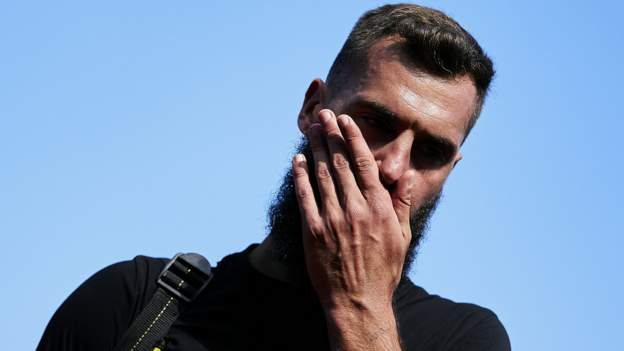
Benoit Paire has been barred from representing France at the Tokyo Olympics in July because of his "deeply inappropriate behaviour".
As the French number four and world number 35, Paire would have been able to qualify to represent his country.
He has been criticised for his on-court behaviour, most recently for spitting at the Argentina Open in March.
The French Tennis Federation (FFT) said Paire's behaviour was "totally incompatible with the Olympic spirit".
Paire has lost nine of his 10 singles matches this season and has made repeated social media posts about how "boring" he finds the tour.
After his first-round exit in Monte Carlo on Sunday, Paire said tennis "does not make me happy anymore" and criticised the Covid-19 bubble protocols.
The FFT said Paire had apologised for his behaviour in Argentina but his comments in Monte Carlo meant they would not take him to Tokyo.
Paire was previously sent home from the 2016 Olympics in Rio for poor behaviour and breaching team rules.
"It is the duty of each player and each high-level player to respect the values of our sport," FFT president Gilles Moretton said.
Paire has been offered support by the governing body.



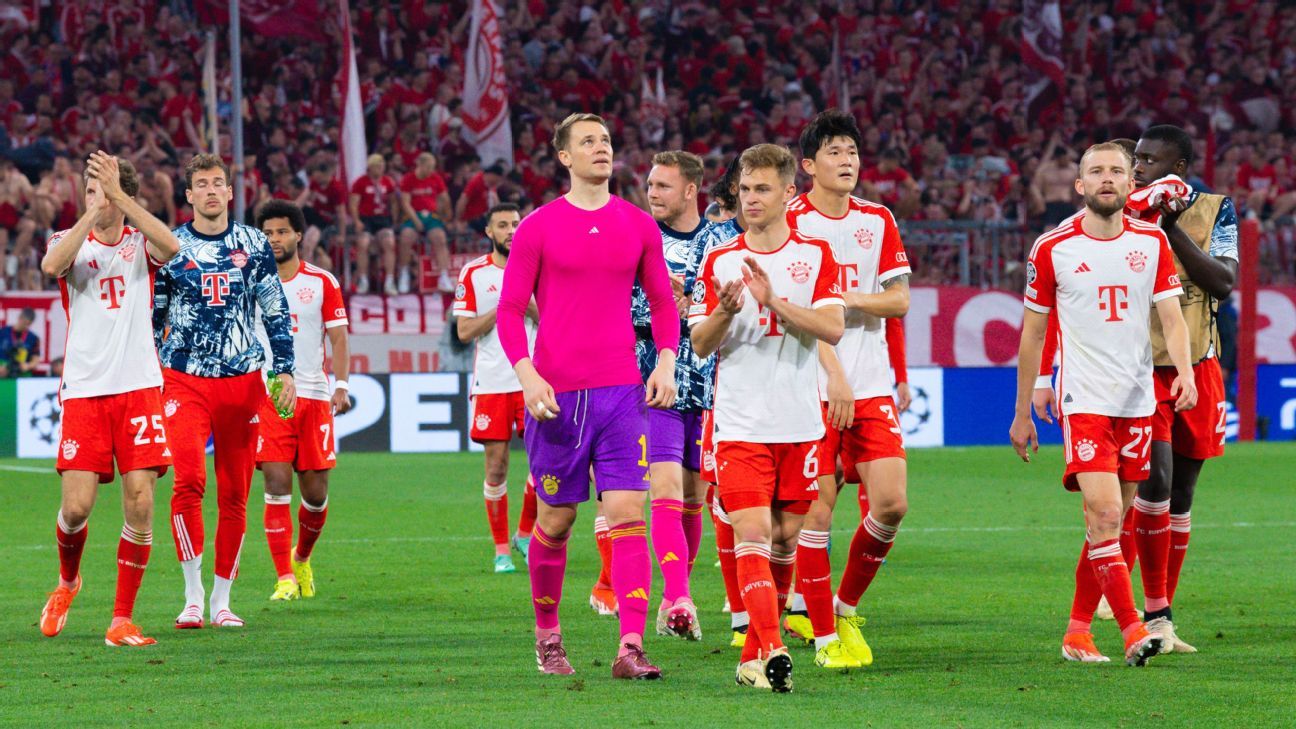
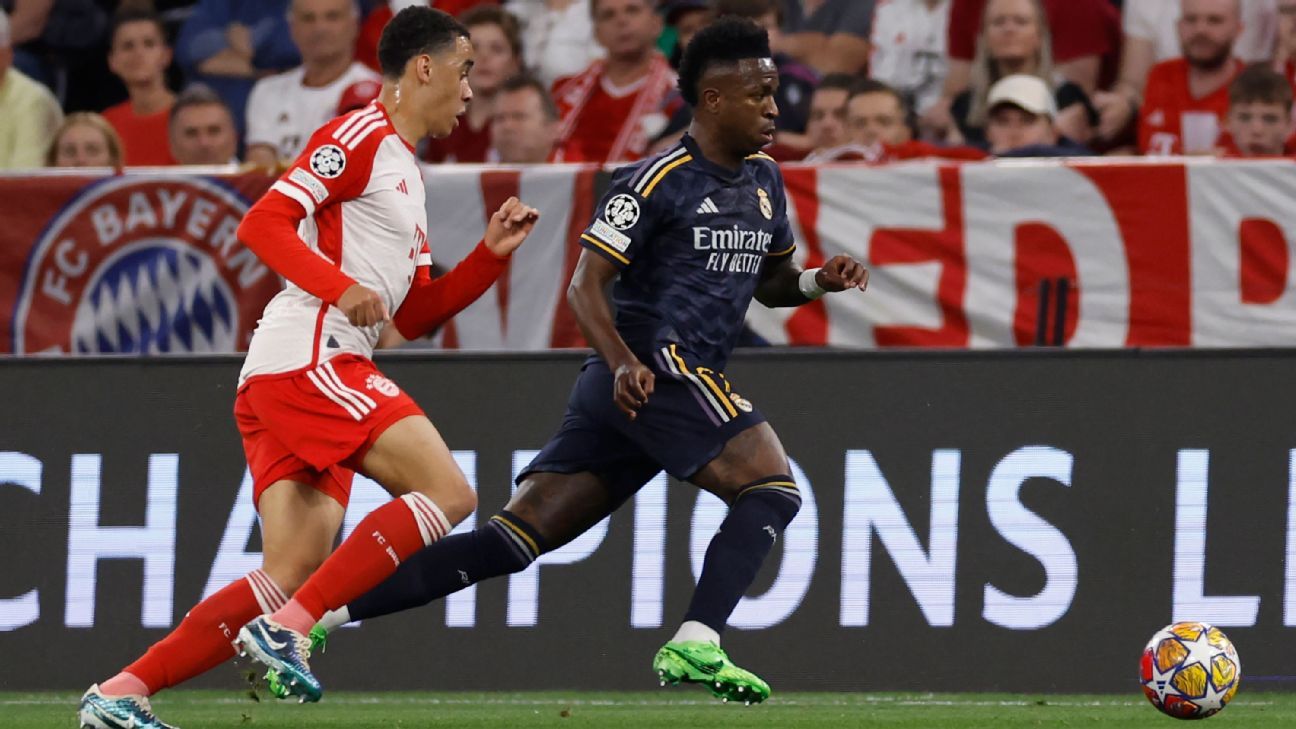





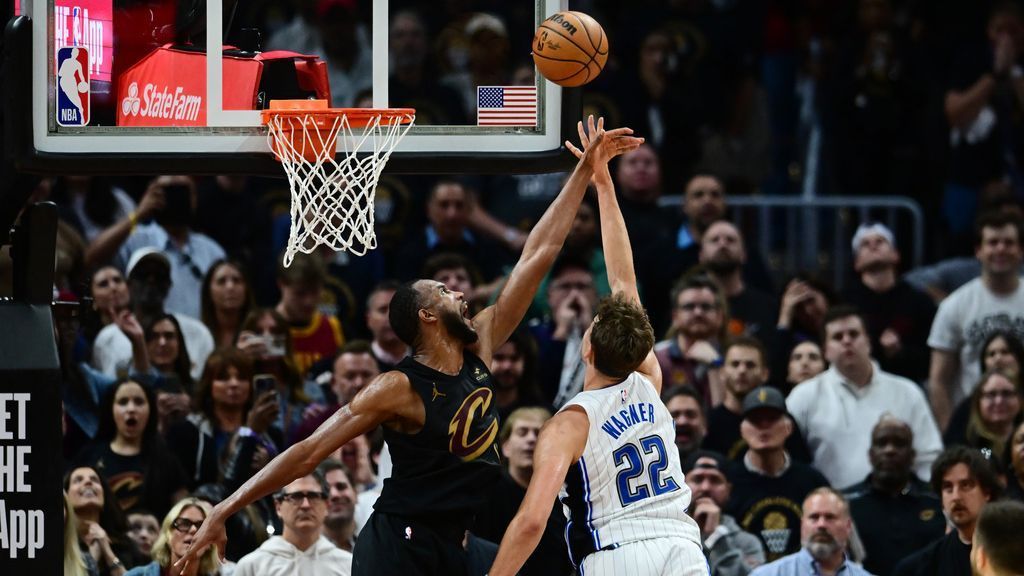
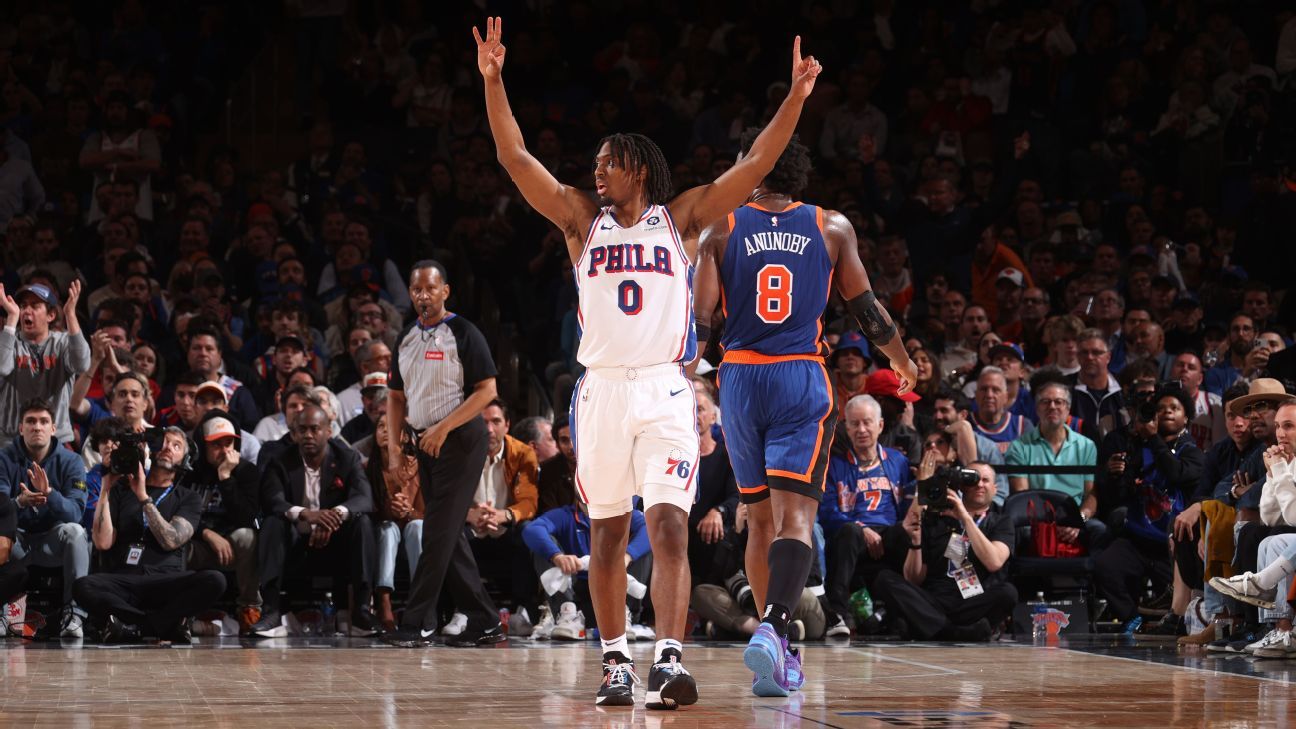
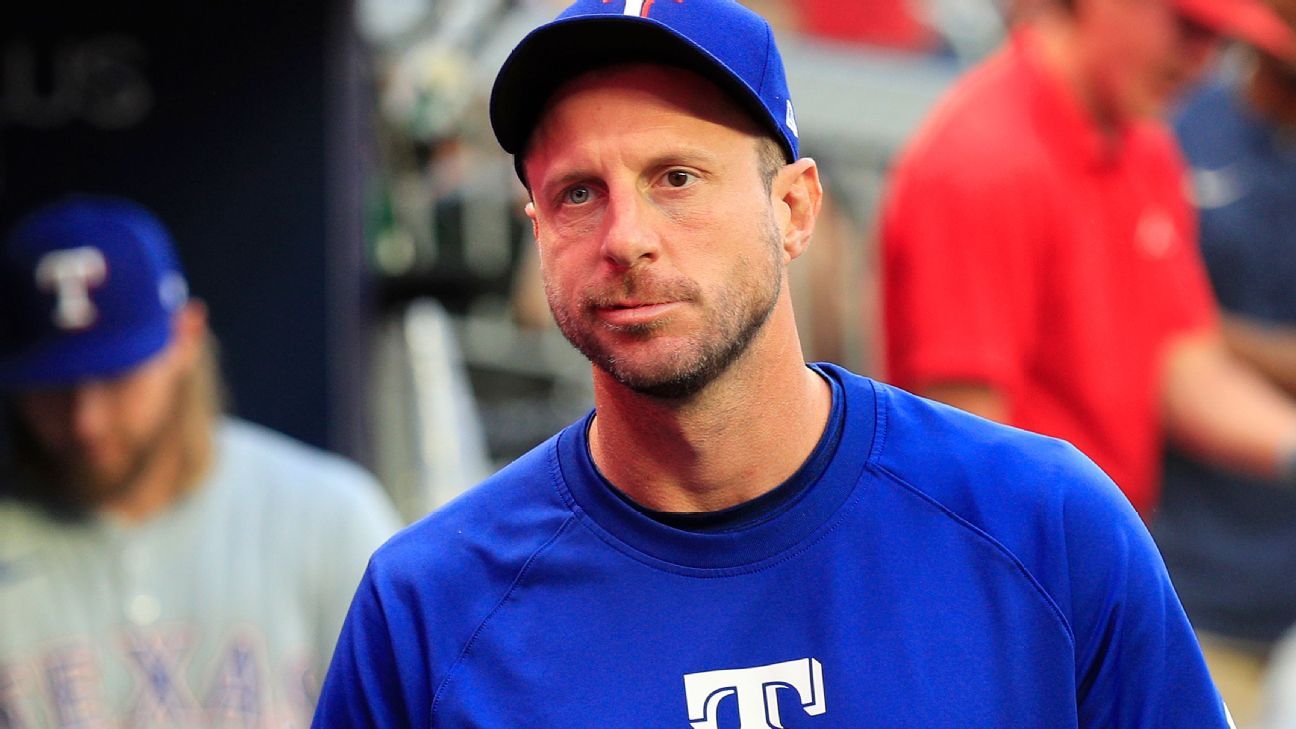
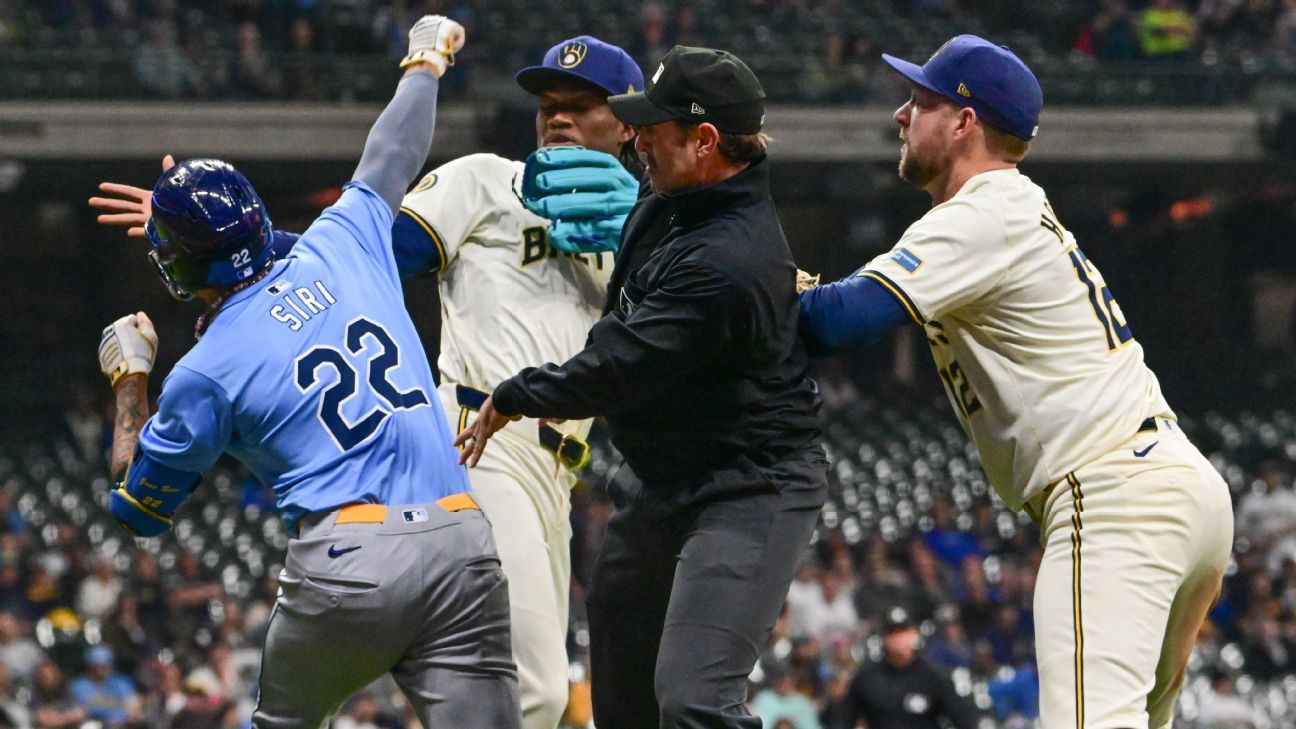

 Phone: (800) 737. 6040
Phone: (800) 737. 6040 Fax: (800) 825 5558
Fax: (800) 825 5558 Website:
Website:  Email:
Email: 






